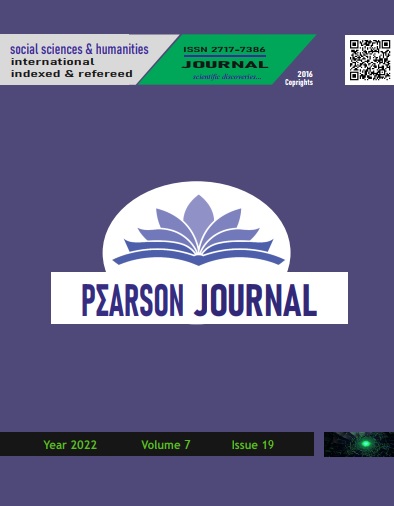THE RELATIONSHIP BETWEEN MIND MAPS AND LEARNING APPROACHES OF MATHEMATICS AND ACCOUNTING TEACHERS TAKING PEDAGOGICAL FORMATION EDUCATION
DOI:
https://doi.org/10.46872/pj.492Keywords:
Mind map, learning approaches, pedagogical formationAbstract
Learning approaches are thought to be related to the attitude of individuals towards learning. Mind maps, on the other hand, can be considered as visual tools that enable learning when looking at the definitions in the literature. The problem of this research is whether the methods preferred by individuals while creating mind maps and the quality of the mind maps they create are shaped according to their learning approaches. In the research, it was aimed to reveal the relationships between the learning approaches of pre-service mathematics and accounting teachers who received pedagogical formation education and the department they study in, and some variables (mind map score, mind map construction method) based on the mind maps they prepared. The research was carried out in a survey design, which is one of the quantitative research methods. The study group of the research consists of 59 (21 mathematics, 38 accounting) teacher candidates who took the "Special Teaching Methods" course in the pedagogical formation education program. For the content of the course, an explanation was given to the teacher candidates about how to prepare mind maps and what to consider when preparing mind maps. The first of the two measurement tools used in the research is the mind maps prepared by the pre-service teachers about special teaching methods. The second one is the "Learning Approaches Scale" developed by Biggs et al. (2001) and adapted to Turkish by Batı et al. (2010) and ensured its validity and reliability. The scale was applied online to 59 pre-service teachers who constituted the study group of the research. Analysis of the obtained data was carried out with Independent T-Test and One-Way Analysis of Variance (ANOVA). In the findings of the analysis, it was revealed that both mathematics and accounting teacher candidates were inclined to the deep learning approach. At the same time, no significant difference was found between the learning approaches of the pre-service teachers and the department they studied, their mind map scores and mind map making methods. Finally, a general evaluation was made for the findings and suggestions were made for the studies to be done in this field.




